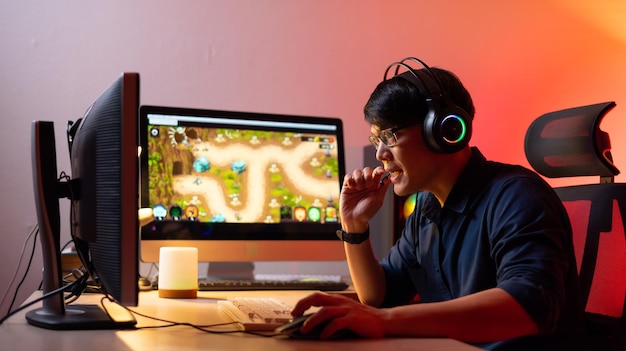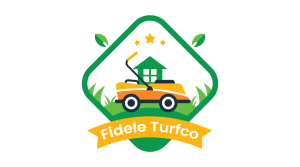Gamer Focus Skills are the backbone of success in competitive gaming, where milliseconds and micro-decisions define champions. Energy management, though often overlooked, determines whether a player can maintain sharpness during long tournaments or succumb to mental fatigue at critical moments.
At the highest level of esports, players spend hours in high-stress environments, facing continuous cognitive and emotional challenges. Managing that energy effectively—both physical and mental—isn’t optional; it’s a competitive necessity.
The Science Behind Gamer Focus Skills
At its core, Gamer Focus Skills are rooted in cognitive endurance. Just like athletes train for stamina, esports players must build mental resilience to sustain focus during extended sessions. The brain consumes significant energy—glucose, oxygen, and neurotransmitters—to process visual data and decision-making under stress.
Studies in performance psychology show that after just 60–90 minutes of high-concentration activity, cognitive efficiency begins to drop. For gamers, this can mean missed shots, slower reactions, or mental lapses in communication. The key is not just avoiding fatigue but strategically managing mental output to stay sharp from the first round to the final moment.
Professional teams now employ sports psychologists and nutrition experts to help players regulate energy through structured practice sessions, hydration, and breathing routines.
Energy Cycles and Peak Focus
Understanding personal energy cycles is crucial to mastering Gamer Focus Skills. Not every player performs best at the same time of day. Circadian rhythm plays a major role in determining when your mind is most alert and responsive.
Top esports professionals align their scrims and tournaments around their natural energy peaks. They track their concentration levels throughout the day, ensuring their most intensive sessions happen when focus is strongest.
During matches, the goal is to sustain micro-bursts of energy through short breaks, mindfulness exercises, and consistent hydration. The objective isn’t to remain at 100% all day—it’s to manage energy strategically to deliver maximum performance when it counts most.
Nutrition and the Energy-Performance Link
Food directly influences Gamer Focus Skills. Heavy meals can slow cognitive processing, while sugar spikes lead to sudden crashes in concentration. Esports nutrition has evolved beyond energy drinks and fast snacks—players now follow scientifically designed diets focused on stable glucose levels.
Complex carbohydrates, omega-3 fatty acids, and lean proteins support sustained brain performance. Foods like nuts, eggs, and berries improve reaction times and decision-making ability. Even hydration alone can influence mental alertness—dehydration of just 2% reduces cognitive performance noticeably.
Many top-tier teams hire nutritionists to craft meal plans around tournament schedules, ensuring every player operates in their optimal state. This integration of diet and psychology defines the modern competitive edge.
Training Energy Like a Skill
Energy management isn’t instinctive—it’s a trained ability, much like aim precision or strategy reading. Building Gamer Focus Skills requires structured practice that mirrors real competition.
Players who overtrain often experience burnout, leading to reduced motivation and chronic fatigue. Smart players train with intensity but balance it with recovery. Short, high-quality sessions are more effective than endless grinding.
Between matches, elite players follow relaxation techniques—deep breathing, progressive muscle relaxation, or short meditative pauses—to reset their mental systems. These micro-recoveries restore clarity and prevent overstimulation.
One professional Valorant player once described this process as “learning when to go full throttle and when to let the mind breathe.” That balance defines long-term success in esports.
Environmental Setup and Energy Efficiency
The gaming environment profoundly affects focus and energy levels. Bright lights, improper ergonomics, or uncomfortable seating can sap mental endurance unconsciously.
For effective Gamer Focus Skills, players optimize their setups to minimize distractions and maximize efficiency. Comfortable chairs, stable posture, correct monitor height, and good lighting contribute to sustained energy.
Noise-canceling headphones and ambient lighting reduce sensory overload, while temperature regulation keeps the body comfortable and responsive. Many teams now use controlled training environments that simulate tournament conditions, allowing players to adapt their focus habits under real stress.
The Psychological Aspect of Energy Control
Mental energy isn’t only about stamina—it’s also about emotional regulation. In competitive gaming, pressure and stress can drain focus faster than physical fatigue. High-stakes matches test composure, and that’s where Gamer Focus Skills truly separate professionals from amateurs.
Mindfulness techniques such as visualization and mental rehearsal help players build psychological resilience. Before matches, visualizing successful plays or calm reactions to setbacks conditions the brain for performance under pressure.
Coaches now integrate mental cooldowns post-match to help players decompress. This reduces stress accumulation and allows smoother recovery before the next competition.
The best players treat focus as a renewable resource—not a finite one. They understand that managing stress and recovery keeps their mental “battery” charged for longer stretches.
The Role of Sleep in Cognitive Performance
No discussion about energy management is complete without addressing sleep. Rest is the foundation of all Gamer Focus Skills. Without adequate rest, even the most skilled players experience slower reflexes, impaired decision-making, and mood fluctuations.
Competitive players often travel across time zones, disrupting their sleep cycles. Teams have begun implementing sleep coaching programs, ensuring players maintain consistent rest patterns. Techniques like blue-light blocking, evening wind-down rituals, and controlled caffeine intake contribute to better sleep hygiene. (Gamer Focus Skills)
Sleep quality directly impacts reaction times and strategic clarity—the difference between a missed shot and a match-winning play can be a few milliseconds of fatigue.
Balancing Energy Between Matches and Life
For professional gamers, managing energy extends beyond the screen. Balancing competition, streaming, and personal life is critical for sustained focus. Overexertion leads to mental burnout, while neglecting rest and recreation hinders creativity.
Strong Gamer Focus Skills include time management—knowing when to disconnect. Successful players schedule downtime with the same discipline as practice, using hobbies, light exercise, or nature breaks to restore energy.
This holistic approach ensures long-term career longevity, preventing early burnout that often plagues rising stars.
The Role of Technology in Focus Enhancement
Modern technology has revolutionized how players monitor and enhance their Gamer Focus Skills. Biofeedback tools track heart rate, reaction speed, and stress levels during matches, allowing players to see how their body responds to pressure.
Wearables like Whoop and Oura Ring help gamers measure sleep quality, energy expenditure, and recovery metrics. This data empowers players to make adjustments—altering schedules, workouts, or caffeine intake—to maintain balanced energy.
Neurofeedback training is also emerging, teaching players to self-regulate focus through real-time brainwave monitoring. These innovations represent the merging of science and performance in the world of esports.
Learning Energy Control from Traditional Athletes
The parallels between esports and traditional sports are growing clearer every year. Just like marathon runners pace their effort, or tennis players manage bursts of intensity, gamers too must regulate energy to endure long tournaments.
Top esports teams collaborate with sports physiologists and performance coaches from athletics and cycling to apply proven methods of energy management. Interval recovery, focus drills, and breathing exercises—borrowed from physical sports—are now standard in elite gaming organizations. (Gamer Focus Skills)
This cross-disciplinary exchange has elevated the professionalism of esports, turning what was once seen as casual gaming into a high-performance career requiring precise energy control.
Consistency: The True Mark of a Professional
Ultimately, energy management is what sustains excellence. Many players can perform brilliantly for a few rounds—but only those with superior Gamer Focus Skills maintain peak form across entire tournaments, seasons, and careers.
Consistency is mastery in disguise. It’s the daily discipline of managing energy, refining focus, and staying mentally sharp no matter the challenge. For professionals, this consistency isn’t luck—it’s the result of science, strategy, and self-awareness.
Read also:
addicting games
wheon.com gta vice city
skillmachine net
xbox cloud gaming beta
denver nuggets vs timberwolves match player stats
timberwolves vs golden state warriors match player stats
sacramento kings vs golden state warriors match player stats


